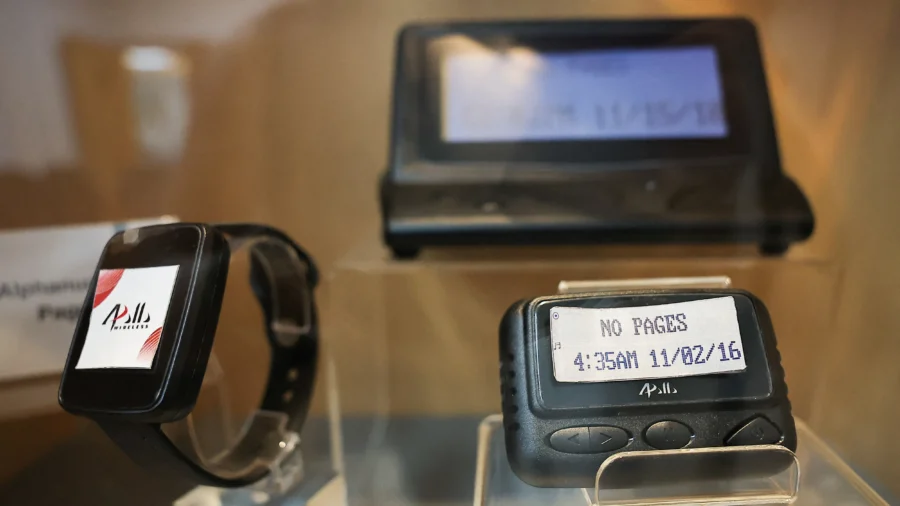Norwegian authorities have issued an international wanted notice for a man in connection with the dissemination of exploding electronic devices to the militant Hezbollah group in Lebanon.
Earlier this month, Hezbollah was struck by a two-day wave of explosions from rigged electronic devices, including thousands of pagers and walkie-talkies, killing dozens and wounding thousands.
On Friday, Reuters identified the man as Rinson Jose, 39, who disappeared while on a work trip to the United States last week. He is believed to have founded a Bulgarian company that was reportedly part of the pager supply chain.
“We have on behalf of the Oslo police sent out an international wanted notice today,” Åste Dahle Sundet, a spokeswoman for Norway’s National Criminal Investigation Service told the Associated Press on Thursday.
In Norway, it is a legal and cultural custom not to publicly name individuals, especially in early stages of legal proceedings.
Dissemination of Pagers to Hezbollah
Norway’s domestic security agency, known by its acronym PST, said that it has also initiated a “preliminary investigation.”
“PST has initiated a preliminary investigation to determine whether there are reasons for starting an investigation on the basis of allegations in the media that a Norwegian-owned company may have been involved in the dissemination of pagers to Hezbollah,” Haris Hrenovica, police attorney at PST told The Epoch Times by email.
Jose’s Norwegian employer, DN Media Group, said he left for a conference in Boston on Sept. 17, and the company has not been able to reach him since Sept. 18. He works at the group’s sales department.
The CEO of the man’s employer told the AP in an email that the company had “tried to contact our employee without success since we first heard the serious allegations about his alleged private activity, which we did not know about and has nothing to do with us as a company.”
“We haven’t heard from him since (last) Wednesday, and we don’t know where he is. This worries us,” DN Group CEO Amund Djuve said.
As Jose’s employer reported him missing to the Oslo police district, authorities then sent a missing person warrant out to Interpol through Norway’s National Criminal Investigation Service (NCIS). The Epoch Times understands this is a normal procedure [that’s what Norway police said on background]
Multi-Country Investigation
The notice is part of a multi-country investigation trying to piece together what happened in Lebanon.
On Sept. 17, the Taiwanese pager manufacturer whose branding appeared on the remnants of beepers that exploded in Lebanon claimed that they were manufactured by another company in Hungary.
The model of pagers used in the detonations in Lebanon was made by Budapest-based BAC Consulting, the Taiwanese firm Gold Apollo said.
The firm said that it had only licensed its brand to the company and was not involved in the production of the devices.
However, Hungary’s Special Service for National Security told the AP last week that the CEO of BAC Consulting had been interviewed “several times” as part of an investigation, but that they believed the company had not taken part in rigging the devices to explode.
“The results of the investigation so far have made it clear that the so-called pagers have never been on Hungarian territory, and that no Hungarian company or Hungarian expert was involved in their manufacture or modification!” the agency said in an email.
Hezbollah has blamed Israel for the wave of exploding electronic devices, but Israeli officials have not yet publicly commented on the matter.
Yossi Kuperwasser, a former military intelligence official and now research director at the Israel Defense and Security Forum, told Reuters last week there was no confirmation that the military intelligence unit Mossad was involved in the attack.
Exploited Flaw
The two main theories initially put forward by analysts were that threat actors exploited a flaw in the batteries for the pagers, or that they planted and then triggered explosive charges added to these devices.
The theory suggests that threat actors infiltrated the supply chain for these pagers and inserted small amounts of high explosives inside them before they were delivered to their end users and that the actors then triggered these explosive charges with a coded message.
Carlos Perez, director of security intelligence at TrustedSec, said, “The battery was probably half explosive and half actual battery.”
Sean Moorhouse, a former British Army officer and explosive ordinance disposal expert, said, “Looking at the video, the size of the detonation is similar to that caused by an electric detonator alone or one that incorporates an extremely small high-explosive charge.”
Commenting on a video of the damage caused by one pager explosion, former CIA analyst Mike Dimino of the US-based Defense Priorities think tank wrote on social media platform X: “This was a small plastic explosive charge made to fit into one of the pager components. A battery isn’t doing this.”
Ryan Morgan, Reuters and AP contributed to this report.
From The Epoch Times

